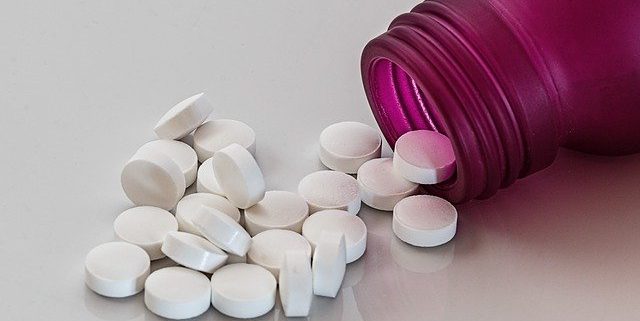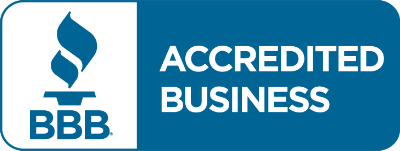Benzo Detox at Home: Everything You Need to Know
Table of Contents
Benzodiazepines (benzos), such as Valium, Ativan, Klonopin, and Xanax, are widely prescribed for a reason. These sedatives, also referred to as tranquilizers, offer swift relief from the symptoms of anxiety, panic disorder, or insomnia. People who struggle with these conditions are beyond ecstatic when they initially experience how quickly these medications take the edge off and lead to a relaxed state of being. But, as with other prescription drugs, there is another side to the benzo story.
Relief That May Come at a Price
While Benzodiazepines may reward the person with fast-acting relief from uncomfortable symptoms, this may come at a price. This class of drugs is highly addictive, with tolerance to the drug’s effects escalating quickly.
Soon, you realize it requires more frequent dosing or higher dosages to experience that calming sensation. Here are some other adverse physical and chemical responses that happen in the body when taking benzodiazepines:
- Your brain adapts. When tolerance increases, that is a sign that the brain has made adaptations in response to the presence of the drug. After continued use of benzos, the brain begins to recognize its chemical properties and adjust its own natural chemistry production in response.
- Dependency and abuse. The addiction-forming chemical properties of benzos make them ripe for dependence and abuse.
- Withdrawal symptoms. Alterations in brain chemistry cause withdrawal symptoms once you have developed a dependency on a benzodiazepine medication. When the drug is withheld, the brain struggles to adjust, leading to a cascade of physical and psychological symptoms.
To minimize the potential risks of benzo detox and withdrawal, a trained detox team, either at a detox facility or a benzo detox at home, will manage the process by gradually stepping down the benzo dosing until the person is eventually weaned off the drug. Additionally, the detox professionals will provide the necessary medical support for minimizing discomfort and psychological support.
What are the Benefits of At-Home Detox?
There are ample benefits for selecting a home detox versus going through the uncomfortable process in a sterile detox facility. Some of these benefits include:
Privacy
One way of protecting privacy during the detox process is to obtain these supportive medical services in the comfort of one’s home. Helping someone complete the detox at home can begin the recovery process while ensuring that these services are fully discreet.
Less stress
Going through the detox process among your familiar surroundings is much less stressful when compared to a detox facility. Being at home also means having access to supportive family members.
Higher level of care
Having one-on-one medical oversight provides the utmost level of care, and gives the individual confidence that they will be carefully supervised throughout the detox and withdrawal process.
Family support
A home detox nurse and their team can also support family members during their loved one’s detox phase and prepare them for the next step of rehabilitation and what it will entail.
Is Benzo Detox at Home a Safe Option?
Once you begin to recognize that you’ve developed a problem with benzodiazepines, you may be tempted to try to detox on your own. Hoping to avoid exposing your substance abuse problem to others, you might one day decide just to stop taking Xanax or Valium altogether. This course of action would be a grave mistake, as benzo withdrawal symptoms can be unpredictable and dangerous. However, you can still achieve the goal of a discreet at-home detox experience safely and through the services of a private detox nurse.
Private detox nurses are trained medical professionals who can quickly respond with appropriate interventions as needed. Under the supervision of a physician, the detox nurse will ease you through the detox and withdrawal process. Home detox is a safe and more private alternative to going to a detox center. The detox nurse is also fully trained to provide medical assistance for benzo withdrawal symptoms, from mild to more severe.
What Can I Expect During a Benzo Detox at Home?
Although benzodiazepine detox is not a pleasant experience, with a team of addiction professionals guiding and monitoring the process, the discomforts of withdrawal can be significantly reduced. The benzo detox period generally lasts 1-2 weeks in duration. This timeline and the severity of symptoms rest on several factors, such as the length of time of the benzo addiction, the usual daily dosage, and the individual’s general health status.
What are the Withdrawal Symptoms of Benzodiazepines?
Benzo withdrawal symptoms may include the following:
- Nausea or vomiting
- Agitation
- Diarrhea
- Panic attacks
- Tremors
- Confusion and impaired cognitive function
- Sleep disturbance
- Irritability
- Sweating
- Nausea
- Dry heaves
- Short-term memory problems
- Heart palpitations
- Anxiety
- Seizures
The at-home detox team will ensure that you receive medications to help soothe much of the discomfort associated with withdrawal symptoms.
About Rebound Anxiety & Insomnia
Benzodiazepines are often prescribed for the short-term relief of generalized anxiety disorder and insomnia. But, when people stop taking them, many experience a magnified sense of anxiety and difficulty sleeping. When this happens, it is known as the rebound effect.
There is a difference between rebound anxiety and withdrawal. With rebound anxiety, the increased symptoms are in response to the regression of symptoms that were there before the person started taking benzos. Withdrawal symptoms, on the other hand, are realized when the body scrambles to adapt to the cessation of taking benzos.
How long does benzo rebound anxiety last?
If you want to know how long a benzo rebound lasts, the effects of anxiety and insomnia typically last 2 to 3 days.
Will I Need to Go to Rehab?
While completing the detox and withdrawal is an excellent start to the recovery journey, it is only the beginning of reaching your goal of living a life free of drugs, such as Xanax, Valium, Klonopin, or Ativan. To break that grip, you must learn new ways of coping with emotions and stressors that otherwise would have sent you reaching for the medication. This goal is accomplished through the multi-pronged addiction recovery program available in either an outpatient or residential setting.
It is a good idea to begin researching different rehab options prior to the start of the at-home detox, allowing enough time to locate a program that is the right fit for your needs. With so many options available, it can take a while to decide on the rehab, check insurance benefits, and plan for this critical recovery phase.
Pronounced Addiction Needs Residential Rehab
Generally, the more serious the benzo addiction, the higher the level of care is needed. For emerging benzodiazepine dependence, an outpatient program will likely provide the right balance of therapy, education, and freedom. For more pronounced addiction, residential rehab is appropriate. The residential setting provides housing for an extended stay, usually 1-3 months, with 24-hour support and a full schedule of therapeutic activities.
Both outpatient and residential rehabs aim to address and treat dysfunctional thought patterns and behavioral habits that have led to the benzo problem. A sustained recovery depends on learning new ways of framing your thoughts and healthy responses to triggers. This is why cognitive behavioral therapy will be the focus of the rehab experience.
In addition to the CBT, you will participate in a variety of activities that support recovery goals. These include group therapy, addiction education, 12-step programming, psychosocial skill-building, complementary activities, such as life skills, relaxation techniques, and nutrition and wellness counseling.
Continuing Your Care after Rehab
Once your rehab program is completed, recovery will be further reinforced through continuing care actions. These are the supportive activities that help you maintain abstinence from benzodiazepines.
Continuing care efforts include measures, such as staying in a sober living home if you do not have a supportive home environment, remaining active in a local recovery community such as A.A. or a similar program, and continuing to see your therapist on an outpatient basis. All of these measures are going to increase the chance for long-term recovery success.
Learn How to Relax Without Drugs
People generally lean on benzodiazepines with the hope of reducing the effects of stress and anxiety experienced in daily life. Once you have completed detox and rehab, you will need to access new healthy ways to reduce stress and to achieve a feeling of relaxation. Fortunately, there are several effective ways to do this without the need to return to prescription medications:
- Practicing yoga. Yoga is an ancient practice that has been shown to deliver significant benefits to people who struggle with stress or anxiety. The motions and postures vary depending on the style of yoga, with some forms of yoga being suited explicitly for relaxation. Yoga combines physical actions with a focus on breathing and mindfulness.
- Deep breathing. We can quickly calm our minds and bodies when practicing deep breathing techniques. Through the purposeful process of deeply inhaling, holding the breath for a few seconds, and then fully exhaling, we can lower blood pressure, reduce heart rate, and release muscle tension. Repeat this pattern several times to fully benefit from deep breathing exercises.
- Essential oils. Essential oils are the concentrated liquids derived from flowers and plants. The oils are used for a multitude of medicinal purposes, with certain oils used for healing various conditions. The best essential oils are peppermint, lavender, lemongrass, frankincense, and rose when it comes to managing stress.
- Herbal supplements. Herbal supplements are drug-free, natural remedies to help treat stress and anxiety. Some of the most popular include ginkgo biloba, Ashwagandha, passionflower, valerian root, and L-Theanine.
- Therapeutic massage. When you find yourself experiencing tension throughout your body, indulge in a relaxation massage. A Swedish massage provides a moderate amount of pressure while gently working the tension out of your muscles.
- Mindfulness. Mindfulness works by training yourself to ignore distracting and upsetting thoughts and focusing on the present moment instead. Shifting the focus away from distressing thoughts toward the sensations experienced at a given moment helps avoid dwelling on stress-inducing thoughts and worries.
- Physical activity. One of the best ways to relieve stress is through exercise. Physical exertion helps stimulate endorphins, which can rapidly improve your overall state of mind. In addition, exercise helps produce the neurotransmitters dopamine and serotonin, which can help reduce stress and enhance the quality of sleep.
Kinkaid Private Care Provides Private Detox Nursing Services at Home
Kinkaid Private Care is a leading home detox service provider, offering expert detox professionals to help individuals begin recovery in the privacy of their own homes. Kinkaid Private Care detox nurses work closely with a physician who is an addiction specialist. The doctor guides the benzo tapering schedule and oversees the detox from start to finish. For more information about completing an in home benzo detox, please contact us today.
OUR COVERAGE AREAS
We service patients in California. Our headquarter states:
- Los Angeles
- Beverly Hills
- Bel Air
- Brentwood
- Westwood
- Pacific Palisades
- Santa Monica
- Malibu
- Holmby Hills
- Cheviot Hills
- Culver City
- Beverly Glen
- Beverlywood
- Includes Costa Mesa
- Newport Beach
- Newport Coast
- Huntington Beach
- Irvine
- Laguna Hills
- Laguna Niguel
- Laguna Beach
- Mission Viejo
- San Clemente
- San Juan Capistrano
- Yorba Linda
- Chino Hills
- Dana Point
- San Diego
- La Jolla
- Eastlake
- Hillcrest
- Carlsbad
- Oceanside
- Coronado
- Chula Vista
- Del Mar
- Escondido
- San Francisco
- Daly City
- Palo Alto
- Mountain View
- Oakland
- Berkeley
- San Rafael
- Richmond
- Walnut Creek
- Alameda






